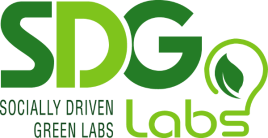Climate change has brought the irresistible pressure toward a paradigm shift focused more on the complex consequences of environmental and social crises. Inclusive-ecological-transition-driven role of the Social Economy sector (social enterprises, cooperatives, mutual societies, non-profit associations) is concentrated in so-called green social economy entities (SEEs). By introducing and developing innovative solutions green social economy entities operate in such economy areas as circular economy, renewable energy, sustainable agriculture, social housing. Their presence is manifested also on the level of intersectoral cooperation (with enterprises, citizens). Against this background the role of education emerges which is of paramount importance to harness the full potential of the SEEs toward a green transition. Higher Education Institutions have a particular role to play in building students’ green knowledge, skills, and competences so as to upscale the role of the SE in the green sector. There are deficiencies of Higher Education Institutions in terms in aligning curricula and syllabuses to the requirements of environment sustainability, on the one hand, and the increasing demand for green skills (as transversal competences) in SEEs, on the other hand.
The adjustment towards green transition taking place in SEEs is assumed to be the central issue of the paradigm shift, and the innovation in education (training programmes, workshop methodologies such as simulation-based learning) is a key driver
SDG Labs Research Report
COORDINATOR
 Pedagogical University of Krakow, Poland
Pedagogical University of Krakow, Poland
PARTNERS
 Stimmuli for Social Change, Greece
Stimmuli for Social Change, Greece
 Prague University of Economics and Business, Czech Republic
Prague University of Economics and Business, Czech Republic
 University of Macedonia, Greece
University of Macedonia, Greece
 Association for Social Cooperatives, Poland
Association for Social Cooperatives, Poland
SDGLABS ACTIVITY
| M | T | W | T | F | S | S |
|---|---|---|---|---|---|---|
| 1 | ||||||
| 2 | 3 | 4 | 5 | 6 | 7 | 8 |
| 9 | 10 | 11 | 12 | 13 | 14 | 15 |
| 16 | 17 | 18 | 19 | 20 | 21 | 22 |
| 23 | 24 | 25 | 26 | 27 | 28 | |
NEWSLETTER

